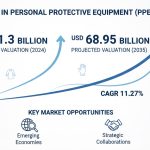Global Zero Emission Vehicle (ZEV) Market
As stated in our extensive report; the Global Zero Emission Vehicle (ZEV) Market accounted for USD 231.5 Billion in the year 2021.
The market for Zero Emission Vehicle (ZEV)s is expanding due to rising environmental concerns, strict government rules on vehicle emission standards, and rising demand for high-performance and fuel-efficient cars. However, it is anticipated that factors including range anxiety, high manufacturing costs, and serviceability will restrain the market’s expansion. In addition, the leading players in the market for low-emission vehicles should benefit greatly from technology improvements and proactive government initiatives. Additionally, because of government incentives and increased consumer awareness of the products, battery electric vehicles (BEV) are being adopted by customers at an accelerated rate across the globe.
Battery electric vehicles (BEV) use a battery, typically a lithium-ion battery, to power electric power. The vehicle is powered by compressed air, and air-propelled vehicles are common transportation. Although the technology is still in its infancy, it is anticipated to offer opportunities for the Zero Emission Vehicle (ZEV) sector in the future.
-Market.jpg)
Factors Influencing Global Zero Emission Vehicle (ZEV) Market Growth
The growth of the global Zero Emission Vehicle (ZEV) market can be attributable to the following:
- The Zero Emission Vehicle (ZEV) market has experienced significant expansion due to the requirement to fulfill future energy demands. The need for environmentally friendly transportation primarily drives demand for Zero Emission Vehicle (ZEV).
- The Zero Emission Vehicle (ZEV) market is quickly growing to become a significant area of the automotive industry, providing a path to higher energy efficiency and fewer emissions of pollutants and other greenhouse gases.
- Also, the market expansion for Zero Emission Vehicle (ZEV) is being driven partly by rising environmental concerns as well as supportive government measures.
- Rising energy prices and competition among new energy efficiency technologies are expected to support the expansion of the Zero Emission Vehicle (ZEV) market.
- Government incentives and increased consumer awareness drive the worldwide Zero Emission Vehicle (ZEV) market.
- Because of greater knowledge of Zero Emission Vehicle (ZEV) and global warming, consumers are favoring ZEVs. Additionally, the demand for Zero Emission Vehicle (ZEV) is increasing globally due to growing gasoline prices, declining ZEV pricing, greater ZEV capacity, and rising per capita income.
On the other hand, a major impediment to the worldwide market for Zero Emission Vehicle (ZEV)s is the need for more infrastructure. The demand for ZEVs is rising globally, with electric vehicles being a prominent example. However, the electric vehicle market is primarily constrained by a lack of charging infrastructure, which restrains the market for Zero Emission Vehicle (ZEV)s.
North America Region to Take Over the Market
North America holds the major share in the Zero Emission Vehicle (ZEV) market and is projected to continue this trend during the forecast period. The desire for electric vehicles in China has been fueled by well-developed charging infrastructure, government incentives, the existence of electric vehicle manufacturers, a drop in vehicle pricing, an increase in gasoline prices, and increased awareness. Japan is another country with a significant number of battery-electric vehicles, in addition to China. As a result, North America held a significant portion of the global market for Zero Emission Vehicle (ZEV).
Conclusion
Many environmental factors that are on the rise, such as global warming, air pollution, deforestation, and climate change, have positively impacted the total Zero Emission Vehicle (ZEV) market sales.
The well-known players of the Global Zero Emission Vehicle (ZEV) Market include Fiat (Italy), Hyundai (South Korea), BMW (Germany), Kia (South Korea), Chevrolet (US), Toyota (Japan), BYD (China), Tesla (US), Nissan (Japan) and others.
![[Market Research Reports] – Research Google News Blog | VMR.Biz](https://www.vmr.biz/wp-content/uploads/2022/12/logo-removebg-preview.png)











